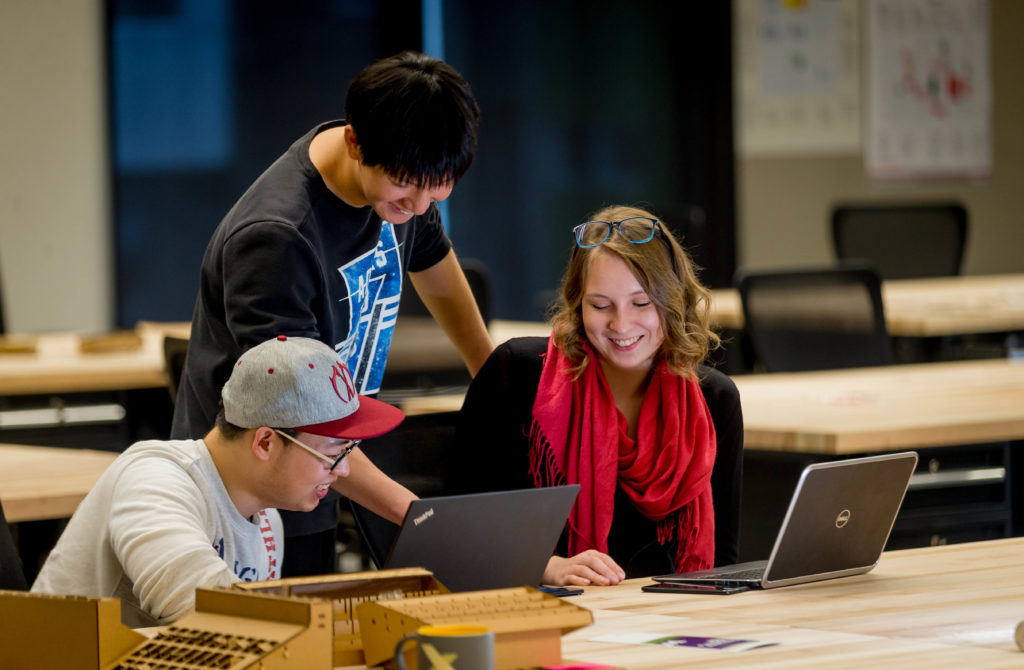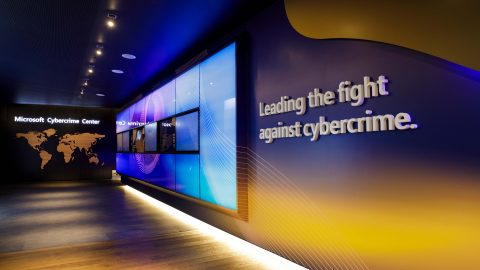A baby monitor for chickens and other projects solving real-world problems
High mortality rates in chickens; loss of biodiversity; and the feeling of loneliness. These and other challenges are being addressed by the first graduates of the Global Innovation Exchange, or GIX.
GIX is a partnership between the University of Washington and Tsinghua University in Beijing, with foundational support from Microsoft. This project- and team-based program offers a 15-month Master of Science in Technology Innovation and a 21-month Dual Degree.
Most of the projects are sponsored by industry partners, including Microsoft, Boeing, T-Mobile, AT&T and Baidu. Leaders from the industry partner companies pitch loosely defined projects to GIX students, and then mentor the teams as the projects develop.
In this way, students tackle both local and global challenges, drawing on the expertise and technology of their project partners.
The first class, which included students from Seattle, Estonia, India and Paraguay, graduated in December 2019. Here’s a taste of what the students came up with.
CluckAI
Eggs are a critical source of food around the world.
But many poultry farmers must contend with a significant loss of flock, especially in egg-laying hens, because of disease, animal predators, heat and theft.
To help solve this problem, GIX students built a machine–learning program, CluckAI, that can identify when chickens are in distress. Listening devices placed around the flock monitor sounds, while algorithms analyze those sounds and alert the farmer, who can take action.
One team member, Padraic Casserly, likened it to a baby monitor for poultry farmers.
This project was developed in collaboration with Microsoft FarmBeats, which is helping farmers increase productivity and lower costs through employing a more data-driven approach to farming.
Diversita
As people encroach on the habitats of wildlife, there is a risk of losing species and reducing biodiversity. According to a recent study from the National Academy of Sciences of the United States, a sixth mass extinction is already underway. But what if we could train cameras to help protect wildlife?
A GIX student team created a motion-sensor camera called Diversita that uses machine-learning to identify up to 5,000 species of wildlife. Data captured by the camera is analyzed in real time.
This can save hours of work poring over photographs to spot animals. It can also be used to detect invasive species and study shrinking icebergs and other environmental changes.
This technology was built on research already carried out through Microsoft’s AI for Earth program, which uses artificial intelligence to address areas vital for building a sustainable future.
SparkEd
Parents sometimes need to leave their children in the care of relatives while pursuing educational or employment opportunities abroad.
This was the case for one of the GIX students studying in Seattle, who had a 10-month-old son in China. The separation made him think about how he could contribute meaningfully to his son’s development from afar.
It inspired SparkEd, an app that allows parents to customize and remotely guide their children’s learning.
This app is designed for children ages 4 to 8, and was built around a picture book, “The Stray Dog.”
As the child reads the story on the app, the parent can build in a question for them to answer.
For example, when the stray dog appears, the child is presented with a choice: should it shoo the dog away, or feed it, because it looks hungry?
The parent decides which answer is the most appropriate based on the beliefs and values they want their child to learn. In this way, the app helps parents teach their children how to react in everyday situations.
PlayerX
Many people move to a new city to take a up a new job or to study, without knowing a soul. Seattle is one of the fastest–growing cities in the United States, according to the U.S. Census Bureau. The number of newcomers has increased by 20% in the last eight years.
Knowing this, a team of GIX students designed and developed PlayerX – an app that helps connect people in offline interactions.
The app “strategically connects people that frequent the same places and engage in similar activities,” according to its description. The more two users have in common, the more interaction is available through the app. Users can then decide whether to add people as a friend on the app, opening the possibility of meeting in person.
The goal is to help people make new, lasting friendships, and the app is aimed not just at newcomers but at locals too.
UbiRight
The process of getting legal copyright on content can be complex. One group of students used blockchain technology to remove the traditional barriers to getting copyright protection for a piece of work.
The platform, UbiRight, allows creators of written or visual content to instantly receive copyright protection when they post the content online. When users create a new piece of content and post it to the platform, UbiRight provides a tamper-proof timestamp to prove the copy is original.
With a focus on design thinking, entrepreneurship and technology development, the GIX program is appreciated by the students as the perfect grounding for careers as innovators.
Some of the students hope to launch start-ups and bring their projects into the real world.
Others have already received job offers from companies including Alibaba, Baidu, Electronic Arts and AMINO Capital, companies that recognize the key skills the students have learned in the program.
GIX is designed to train students to think globally and locally in an era of rapid change and increasingly short business and technology cycles. At the same time, they are bringing forth a raft of projects that show how technology can be used for good.
Lead photo credit: Scott Eklund/Red Box Pictures
To learn about what Microsoft is doing follow @MSFTIssues on Twitter.









